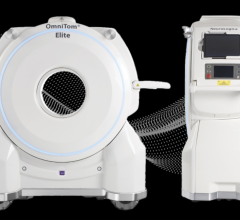
August 19, 2015 — A recent study by Mayo Clinic determined that adding molecular breast imaging (MBI) for women with dense breast tissue resulted in a lower cost per cancer detected than screening with mammography alone. The MBI technology known as LumaGEM, developed and commercialized by Gamma Medica Inc., is a cost-effective tool for detecting early-stage cancers in women who have dense fibroglandular breast tissue, which accounts for 45 percent of all women.
The study, published in the American Journal of Roentgenology (AJR) and entitled, "Diagnostic Workup and Costs of a Single Supplemental Molecular Breast Imaging Screen of Mammographically Dense Breasts," found MBI technologies led to more accurate diagnosis rates, and in combination with mammography, resulted in a cost savings of approximately 15 percent.
An additional publication of the Mayo Clinic study in AJR entitled, "Molecular Breast Imaging at Reduced Radiation Dose for Supplemental Screening in Mammographically Dense Breasts," concluded there was a four-fold increase in detection rates as compared with standard mammography when using LumaGEM as a secondary screening method. Unlike mammography, tomosynthesis and ultrasound – all of which are anatomical imaging tests – the LumaGEM system is a functional imaging modality that highlights the metabolic activity in the breast regardless of tissue density. This allows radiologists to clearly identify early stage cancers. MBI provides equivalent sensitivity, and improved specificity, when compared to MRI, but at roughly one-third of the cost.
About one in every eight women in the United States will develop breast cancer during their lifetime. Nearly one in two women have dense breast tissue, which masks early stages of cancer in traditional screening methods, often leading to missed opportunities for early intervention. Early detection through screening remains the most reliable method to manage the disease. However, for women with dense breast tissue standard mammography and 3-D tomosynthesis lack the clarity and accuracy to detect early stage cancers.
For more information: www.gammamedica.com


 July 30, 2024
July 30, 2024 








